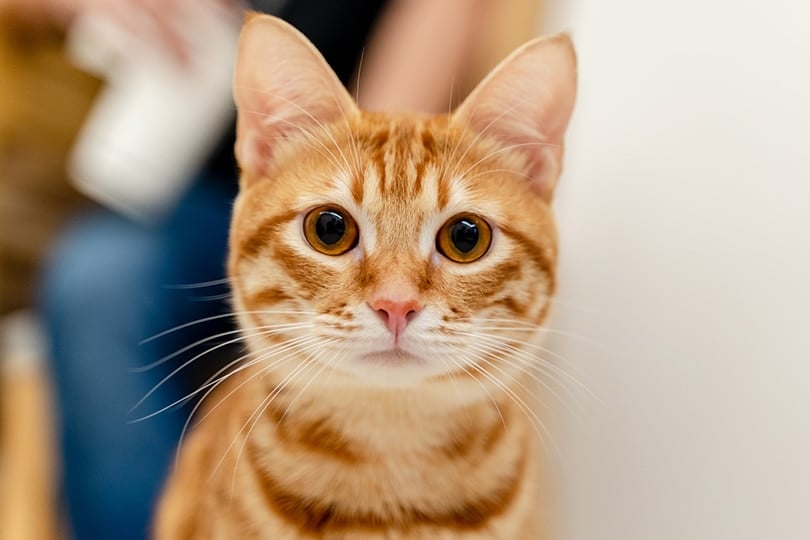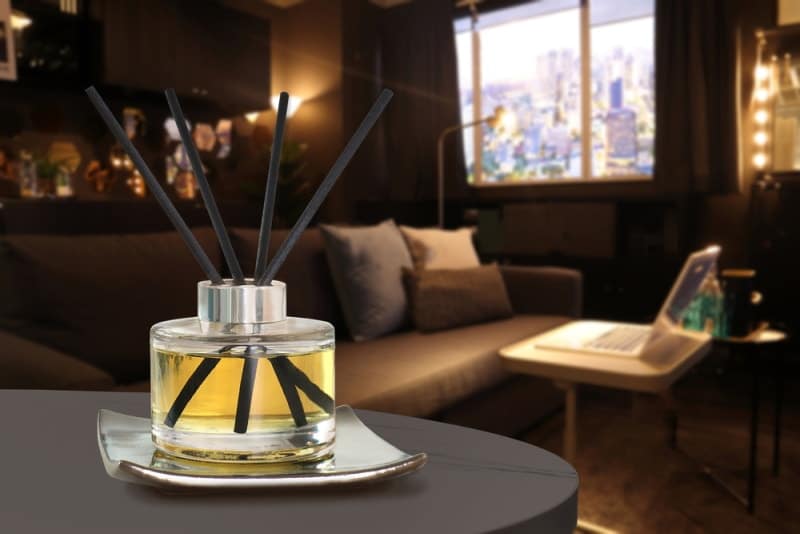As any cat owner can tell you, cats can be set in their ways. If they like something, you know it. If they aren’t fans, they’ll definitely show it. This goes for foods, treats, toys, and even scents around the house. While there are certain aromas cats simply can’t deny, such as meat, there are others you may enjoy that your cat could care less about. One of those scents is vanilla. Vanilla is a favorite scent of many to have around the house. It reminds us of home cooking and relaxing.
But do our cats like it? Every cat is different. You may have a cat who doesn’t care what smells are wafting around the house until a can of tuna is popped open. Some may enjoy vanilla and linger in the room where it is. Then again, your cat may hate the smell and escape to a different room for a bit of fresh air. It’s all up to the cat. What we can tell you, however, is that vanilla is not a scent that cats are normally attracted to when it’s in the air.

Cats and Smells
One thing you must remember about your cat is that they are obligate carnivores. This means they get all their nutrition from the meat they eat. We’re not saying that a few cat-safe veggies in their food aren’t okay, your cat simply prefers the protein inside. Knowing this information, it’s easier to understand why your cat comes running when you open a can of tuna, cook meat, or pop the top on their favorite canned food. Meat is their thing. If you’re a fan of coffee, it’s a bit similar. When you smell coffee, you can’t wait to enjoy it. That’s what your cat thinks when they smells meat.
Cats also smell much better than us. What may seem like a nice vanilla fragrance around the house to you, could be far too overpowering for your kitty. This is thanks to their powerful little noses. You may have a vanilla candle lit that you think is pleasing, but to your cat, it could feel like it is too much. To avoid this type of issue, when you’re using anything with lots of aromas, give your cat a way to escape. Never close them up in a room where you have strong scents. Allowing them to rush off to their favorite hiding spot, or a room with better ventilation will help keep them from getting stressed out over things.

Essential Oils
While the scent of vanilla isn’t something that will attract your cat, or harm them, the means of distributing that smell can be dangerous. Essential oils are toxic for your kitty. This is especially true for those that are 100% concentrated. Cats that inhale, digest, or get essential oils on their skin can become quite sick. Vomiting, diarrhea, and lethargy are a few signs of essential oil poisoning in cats. You may love using vanilla essential oils around the house, but a high concentration of it isn’t the best for your kitty and can be dangerous. Because cats lack an important enzyme pathway to process such oils, no essential oil is truly safe for your kitty.
Using Essential Oils Safely
Essential oil is not safe for cats. If you plan on using essential oils and have a cat, the best solution is to either avoid them or temporarily remove your cat from the room. If this isn’t possible, it is important to follow some general safety tips:
- Whenever possible, remove your cat from the room where you plan to use the essential oil.
- Use the oil sparingly if absolutely necessary – a single drop is usually enough.
- It is a good idea to use an air purifier if you ever choose to use essential oils. Air purifiers can offer protection against airborne particles, allergens, and pollutants that might be harmful to you or your cats.
- Dilute the oil with water before using it on surfaces or objects as this will reduce its strength and make it less harmful for your cat.
- Never apply oils directly onto your cat’s skin and fur as this can cause irritation and discomfort.
- Be careful when using diffusers, as these spray tiny particles of the essential oil around a room, which may land on your cat’s skin.
- Keep all essential oils out of reach of cats as they can be attractive to them due to their strong scent.
- Keep the area well ventilated if you are using essential oils and make sure your cat has access to fresh air.
- Immediately stop using any essential oils if you ever notice your cat having an adverse reaction and take them to your vet right away.
If your cat is pregnant, nursing, asthmatic, recovering from an illness, or has been diagnosed with any other health condition or ailment, always consult with your veterinarian before using any essential oils, aerosols, or diffusers around them. Essential oils should never be used around kittens. Again, it is important to note that using essential oils around cats is strongly discouraged. While some holistic veterinarians are specially trained to use therapeutic grade essential oils in pets, these decisions are best left to professionals.


Final Thoughts
For fans of vanilla, the aroma, and the nostalgia it provides, you can safely use it around your home. If your kitty is one of those that doesn’t jump and run when they smell it, you’re in luck. Vanilla may not be their favorite thing to smell, but not all cats will hate it. In most situations, your cat is going to be indifferent to vanilla. A word of caution, however, for those who enjoy using vanilla essential oils to make their homes smell great. These oils can be dangerous for your kitty so proceed with caution.
Featured Image Credit: Maren Winter, Shutterstock






